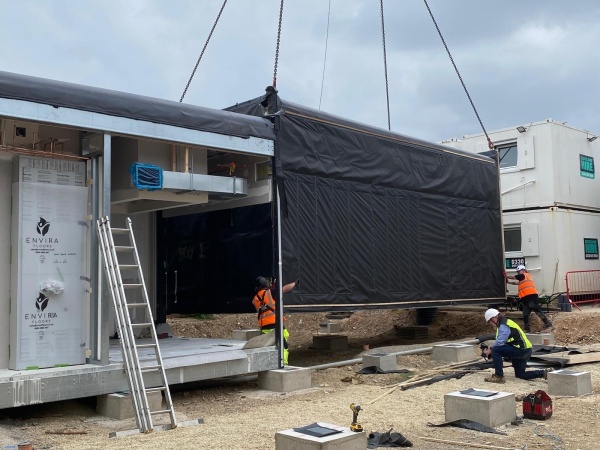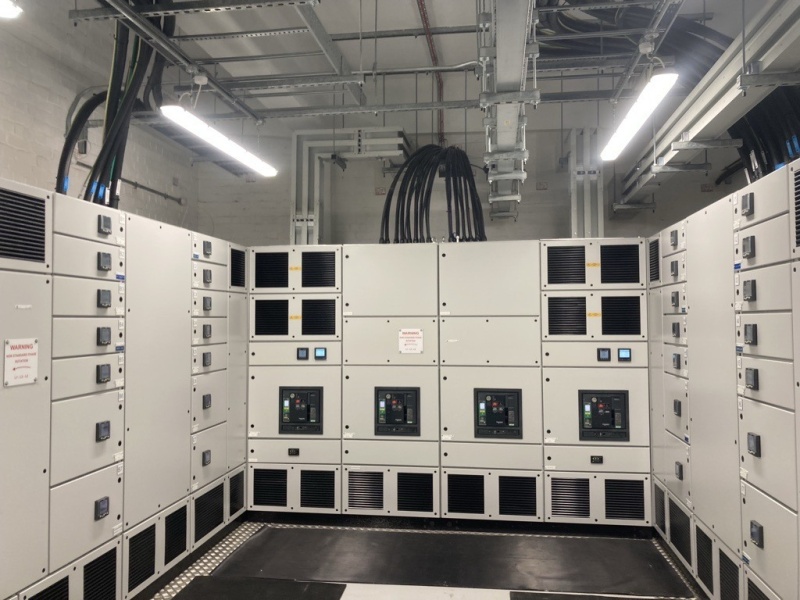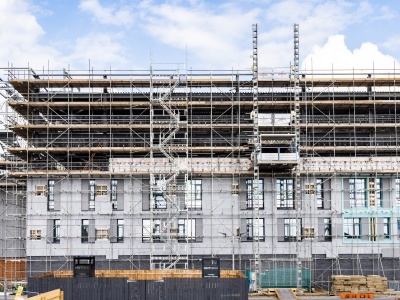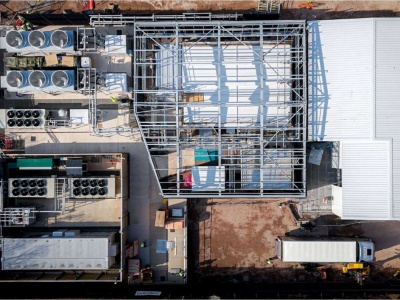
Strengthening electrical infrastructure across the NHS

Strengthening electrical infrastructure across the NHS
Electrical infrastructure might not be the most visible part of our hospitals, but it’s essential. Every ventilator, MRI scanner and surgical light runs via a complex web of systems that keep our hospitals running safely, efficiently, and without interruption. But much of this infrastructure now needs modernising and upgrading to meet our evolving healthcare system.
At Kendall Kingscott, we’re working with NHS organisations across the country and can see this challenge first-hand - from power capacity limitations to ageing systems and the growing demand for electrification, almost every NHS site we work with is experiencing similar challenges.
Why electrical infrastructure needs updating
Many hospitals across the UK were built between the 1960s and 1990s. While these facilities have been adapted and extended over the years, their electrical infrastructure often hasn’t. This has resulted in three main pressures:
- Increased power demand: Advances in medical technology mean hospitals now use far more, and far more powerful, equipment than they once did. Where a hospital might previously have operated a couple of MRI or CT scanners, it will now run many more. That creates significant additional demand for electricity.
- Net Zero transformation: As the NHS transitions towards a Net Zero future, electrical demand is rising even further. Traditional gas-fired heating systems are being replaced with electric alternatives such as heat pumps. The Salisbury Net Zero project, for example, which Kendall Kingscott helped deliver, was designed as a fully electric facility.
- Ageing and obsolete infrastructure: Much of the existing infrastructure - switchgear, breakers, switchover panels - is now outdated.
The cost of doing nothing
Outdated electrical systems don’t just limit capacity, they can directly restrict a hospital’s ability to modernise. Hospitals rely on rolling refurbishment programmes to improve wards, operating theatres, and patient areas. But if the electrical infrastructure can’t meet the required standards, those upgrades can’t go ahead. In effect, the electrics become a blocker to progress.
Equally, resilience remains a major concern. Switchover panels and generators play a crucial role in ensuring essential systems remain powered if there is an outage. If an outdated switchover panel fails, there would need to be urgent replacement works to restore resilience and provide sufficient power.
Delivering solutions across the NHS
Kendall Kingscott has been involved in a number of significant projects designed to strengthen the NHS’s electrical resilience and capacity, including:
- Southampton General Hospital:
- delivery of multiple new substations and generators, including infrastructure for the maternity unit.
- electrical risers feasibility work on providing new electrical riser routes for high-rise blocks, ensuring future expansion capability and compliance with modern standards.
- Salisbury Hospital: supporting the all-electric Net Zero ward project, creating a benchmark for sustainable hospital design.
- Bournemouth Hospital: major electrical infrastructure upgrades, including installation of new substations and power cabling as part of the New Hospital Programme.
- Lewisham Hospital: replacement of switchover panels to improve resilience and capacity.
Each project presents its own logistical challenges, in particular ensuring the continuous delivery of care within the hospital site which means some of the work needs to be managed in tightly controlled windows.
Electrical upgrades often don’t appear glamourous - they involve panels, switchgear, containment routes, and coordination - but they’re vital. Hospitals cannot operate without continuous power, and ensuring that power is safe, reliable, and future-proof is central to patient care.
Powering the future NHS
Electrical infrastructure is one of the three pillars of hospital operation, alongside ventilation and water. As NHS estates continue to upgrade, investing in resilient, modern electrical systems is an essential part of that.
At Kendall Kingscott, we’re proud to support NHS Trusts across the country to deliver upgrades that meet today’s needs and those of our evolving healthcare system. If you have electrical infrastructure challenges in your NHS estate, you can contact us to discuss how we could support: info@kendallkingscott.co.uk.



